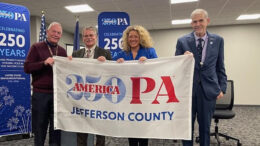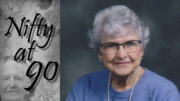Pathways Adolescent Center of Oil City was chosen out of more than 100 facilities statewide to receive the Residential Program of the Year award from the Juvenile Court Judges Commission.
Each year, the commission recognizes one public or private sector program serving delinquent youth in a residential setting.
“It was definitely a big honor,” said Ian Bialo, director of operations at Pathways. “It is recognition to your peers that you are the best in your state, and that what we are doing works.”
Pathways also received this honor in 2006.
Pathways was nominated for the award this year for several areas of outstanding performance, including low recidivism rates and high rates of employment among youth as well as successful education and counseling opportunities.
The facility can house up to 100 people.
“We are bigger than what people realize,” said Bialo. “We are always at least at 90% capacity at all times. That is definitely a positive thing.”
Students also meet every day with a therapist and participate in daily groups that strengthen cognitive behavioral thinking.
“We have five licensed social workers that help with mental health treatment and a psychologist who oversees the team and does evaluations,” said Bialo. He added that Pathways also partners with Family Service and Children’s Aid Society of Venango County.
Bialo said youth often stay at Pathways for three to six months before moving on, often going on to live very successful lives.
“Our youth in our independent living program have one of the highest job placement rates in the state,” said Bialo, who added that “85% of youth are employed in the community.”
Pathways’ independent living program provides young adults with housing in the area, and the program continues to support them through visits three times a week.
“You see these kids who are 25, 26, 27 years old now with good lives and kids. They have jobs at local places. They are successful; they have normalcy,” said Bialo. “I have kids on a regular basis who reach out to me to tell me they are married, they have kids, they have a job.”
“I think the goal is to have these kids be in a better place when they leave here than when they walked in the door,” said Bialo. “The question is, how can we improve their life?”
































